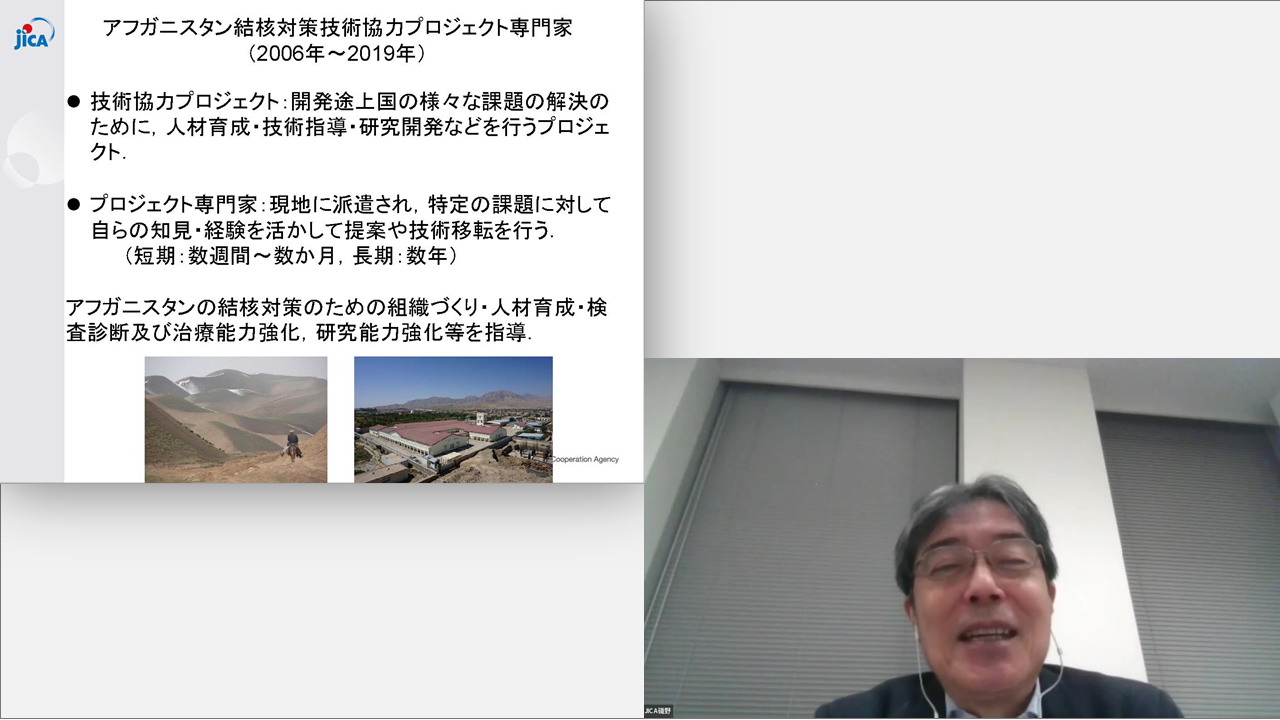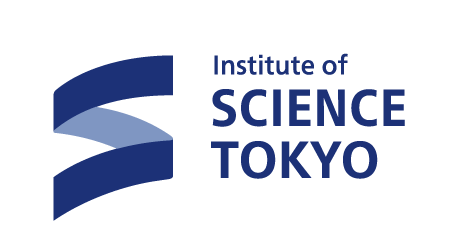The 4th in AY2021 (63rd overall) Find-Your-Role-Model Session was held

Dr. Isono graduated from the Tohoku University, School of Medicine and worked as an Associate Professor at Oita University, School of Medicine, Department of Neurosurgery, before joining the Japan International Cooperation Agency (JICA) as a Specialist in International Cooperation. His specialties are development assistance in the fields of health and medical care, infectious disease control, and public health in general. He has worked in about 40 countries, mainly in the fields of infectious diseases and clinical medicine, including project formulation and evaluation. He has been engaged in field activities for about 15 years, especially as a project leader of the Afghanistan Tuberculosis Control Project.
In his youth, Dr. Isono saw photos and videos of starving children during the Biafra War in Nigeria and the Third Middle East Conflict (both in 1967), which shocked him very much. He continued to be interested in the field of international cooperation after graduating from medical school. After working as a neurosurgeon for almost 30 years, he developed tendinitis, which made it difficult for him to continue as a neurosurgeon. Among the many organizations involved in international cooperation, he chose JICA because it offers a long-term approach to developing countries, including organizational development and human resource development. He stressed the importance of knowing all the options available because the timing and direction of career change is different for everyone.
As a JICA specialist, he has many opportunities to work with people from completely different religious and cultural backgrounds. He often feels that his ideas and values are fundamentally different from the people he is trying to help, which leads to discussions not proceeding easily. In such cases, it is necessary for us to try to understand others. He gave us valuable advice, that we should actively interact with people from different backgrounds when we are students.
I was also impressed by his words that international cooperation by the government is a "national policy". Developed countries provide support to developing countries in the form of technical and financial cooperation. However, in emergencies such as COVID-19, they give priority to their own countries and leave developing countries behind. He said that rich nations should think carefully about how they should behave in today's international society.
He concluded with a quote: "We should not look at people from other countries as disease vectors, but as people.” (Peter Sands, Executive Director of the Global Fund) which really made me think. It was a very valuable opportunity for us to deepen our vision for the future and to think about the future of international cooperation and coordination.
- HOME
- Activity Reports
- The 4th in AY2021 (63rd overall) Find-Your-Role-Model Session was held
